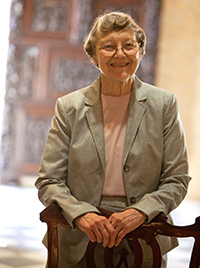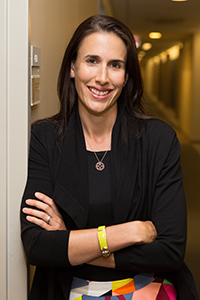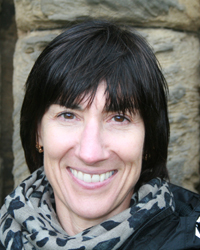
MEET ASOR’S NEWEST BOARD-APPOINTED TRUSTEES
At our 2016 Annual Meeting in San Antonio, the ASOR Board elected four people as Board-Appointed Trustees: Sheila Bishop (reappointed); Vivian Bull (reappointed); Elizabeth Macaulay-Lewis (new trustee); and Jeanne Marie Teutonico (new trustee). Please see below for brief biographies, mission statements, and photos of these new trustees.
Sheila Bishop

Mission Statement
Following a 15 year career in the aviation industry, the demise of Eastern Airlines (a name barely remembered these days) brought unexpected life changes. I was soon to find myself sitting in a square at Sepphoris in the Galilee wondering, “What were you thinking?” But, I was bitten by the bug. Those were the days of dramatic cuts in funding for archaeology, elimination of graduate programs in archaeology, ASOR struggling to make its way into an uncertain future, and eventually William Dever’s article, “The DEATH of a Discipline,” which appeared in Biblical Archaeology Review in the fall of 1995. The future looked bleak, but even as a non-academic, non-specialist, I was determined to take up the mantle and do whatever I could do to help in any way. The success of archaeology in the Near East depends on ASOR and its historic mission to foster original research, archaeological excavations and explorations, and scholarship in related fields. Over the decades, it has been my privilege to participate as ASOR has weathered the storms, growing strong and even expanding into critical new areas such as Cultural Heritage Initiatives. My mission remains the same: Keep the projects going; get the students to the field; publish the finds; and, provide that information in an accessible format to the public. That mission begins and ends with ASOR and the support and guidance it provides for a strong future for archaeology in the Near East. “Go ASOR!”
Vivian Bull

Mission Statement
I have known and worked with ASOR for many years, seeing it grow from a small organization with somewhat limited resources, reaching out to support the interest and work of American higher education in the Middle East. The organization has grown with greater outreach and new opportunities as revealed by a much more diverse membership and series of activities. But there is always more to be done and as archaeologists are working in many different areas with a variety of specialties and concerns, both personal and geographic. ASOR has become more involved and more diversified in its outreach, often led by our younger members. It seems strange to have an academic economist on your board, but with having spent many summers and years both in the field and in the office of an institution involved in archaeology, I feel I can bring some perspectives of both organizational structures and the importance of resources to carry on some of the opportunities in ASOR’s future. I look forward to serving another term on the ASOR board.
Elizabeth Macaulay-Lewis

Mission Statement
As a member of the Board of Trustees, I will support ASOR’s mission to promote and strengthen the study, education, and scholarship of the Near East and wider Mediterranean (NEWM), specially in the Roman, Late Antique and Islamic periods. The archaeology of later Islamic periods, especially that of the Mamluk and Ottoman eras, often lacks a clear academic home in American and Canadian academic institutions. With its work documenting the destruction of archaeological sites of all eras in Syria, ASOR is well positioned to be a natural leader in this area. I am also particularly interested in strengthening the ties between scholars who work on the Near East and those who work in the wider Mediterranean, so that the interconnectivity of these contiguous geographic regions can be better understood. Furthermore, as a digital humanist and the deputy director of the open-access Manar al-Athar photo archive, I am interesting in supporting ASOR’s goals in digital publishing and disseminating the scholarship of its members through open-access platforms, as outlined in the Strategic Plan. Outreach is not only vital to securing the next generation of academics to study the NEWM, but to educate and cultivate the next generation of non-academic supporters of ASOR’s important mission.
Jeanne Marie Teutonico

Mission Statement
In its new strategic plan, ASOR has expressly stated a desire to participate energetically in international efforts to protect, conserve and present the cultural heritage of the Near East and wider Mediterranean. This is at the core of ASOR’s mission and an area of great interest to its membership. As a member of the Board of Trustees, I hope that my expertise and long experience in the realm of heritage conservation will assist ASOR in strengthening and expanding its activities to document, preserve and advocate for cultural heritage in the region. I am already an advisor to ASOR’s Cultural Heritage Initiatives and am especially interested in ways that the project can help to build capacity and bring greater coordination to complementary international activities. More broadly, I am also interested in engaging ASOR in discussions regarding how graduate education in both conservation and archaeology can foster more effective working relationships in the field.